Related Research Articles
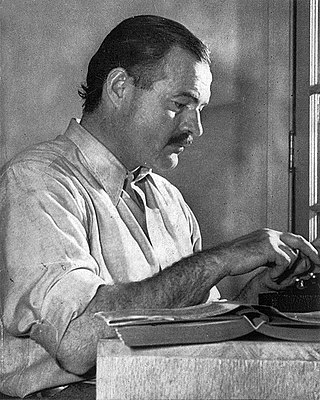
Ernest Miller Hemingway was an American novelist, short-story writer, and journalist. His economical and understated style—which included his iceberg theory—had a strong influence on 20th-century fiction, while his adventurous lifestyle and public image brought him admiration from later generations. Hemingway produced most of his work between the mid-1920s and the mid-1950s, and he was awarded the 1954 Nobel Prize in Literature. He published seven novels, six short-story collections, and two nonfiction works. Three of his novels, four short-story collections, and three nonfiction works were published posthumously. Many of his works are considered classics of American literature.

Ford Madox Ford was an English novelist, poet, critic and editor whose journals The English Review and The Transatlantic Review were important in the development of early 20th-century English and American literature.

A Moveable Feast is a 1964 memoir and belles-lettres by American author Ernest Hemingway about his years as a struggling expat journalist and writer in Paris during the 1920s. It was published posthumously. The book details Hemingway's first marriage to Hadley Richardson and his associations with other cultural figures of the Lost Generation in Interwar France.
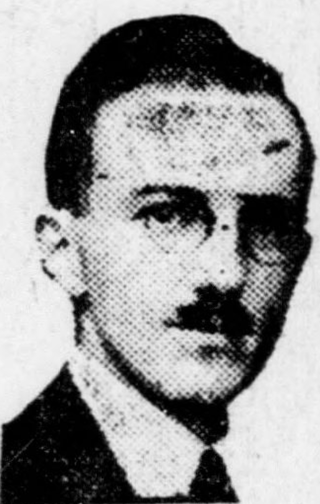
William Augustus Bird (1888–1963) was an American journalist, now remembered for his Three Mountains Press, a small press he ran while in Paris in the 1920s for the Consolidated Press Association. Taken over by Nancy Cunard in 1928, it became the Hours Press, and continued its association with many of the most important modernists; Ezra Pound had a position as editor for Three Mountains from 1923.
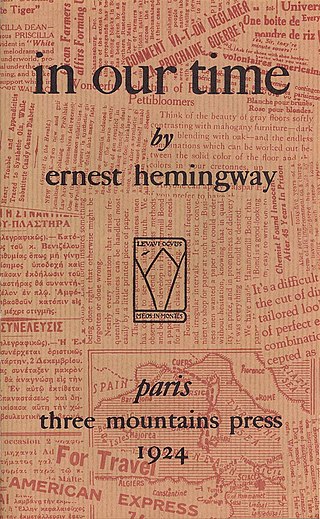
In Our Time is the title of Ernest Hemingway's first collection of short stories, published in 1925 by Boni & Liveright, New York, and of a collection of vignettes published in 1924 in France titled in our time. Its title is derived from the English Book of Common Prayer, "Give peace in our time, O Lord".

Margaret Caroline Anderson was the American founder, editor and publisher of the art and literary magazine The Little Review, which published a collection of modern American, English and Irish writers between 1914 and 1929. The periodical is most noted for introducing many prominent American and British writers of the 20th century, such as Ezra Pound and T. S. Eliot, in the United States and publishing the first thirteen chapters of James Joyce's then-unpublished novel Ulysses.

Caroline Ferguson Gordon was an American novelist and literary critic who, while still in her thirties, received a Guggenheim Fellowship in 1932 and an O. Henry Award in 1934.
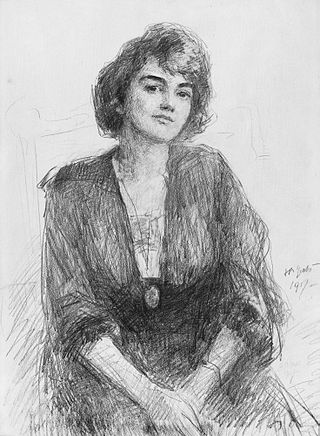
Jeanne Robert Foster was an American poet from the Adirondack Mountains.
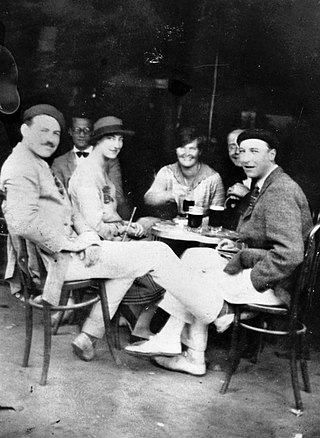
Harold Albert Loeb was an American writer, notable as an important American figure in the arts among expatriates in Paris in the 1920s. In 1921 he was the founding editor of Broom, an international literary and art magazine, which was first published in New York City before he moved the venture to Europe. Loeb published two novels while living in Paris in the 1920s, and additional works after returning to New York in 1929.
The Left Bank and Other Stories is the first collection of short stories and literary debut of Dominican author Jean Rhys. It was first published by Jonathan Cape (London) and Harper & Brothers in 1927, and contained an introduction by Ford Madox Ford. The original subtitle of the collection was "sketches and studies of present-day Bohemian Paris."

"Big Two-Hearted River" is a two-part short story written by American author Ernest Hemingway, published in the 1925 Boni & Liveright edition of In Our Time, the first American volume of Hemingway's short stories. It features a single protagonist, Hemingway's recurrent autobiographical character Nick Adams, whose speaking voice is heard just three times. The story explores the destructive qualities of war which is countered by the healing and regenerative powers of nature. When it was published, critics praised Hemingway's sparse writing style and it became an important work in his canon.

Transatlantic Review was a literary journal founded in 1959 by Joseph F. McCrindle, who remained its editor until he closed the magazine in 1977. Published quarterly, at first in Rome and then in London and New York, TR was known for its eclectic mix of short stories and poetry—by both young, previously unpublished writers and prominent authors such as Samuel Beckett, Iris Murdoch, Grace Paley and John Updike—as well as drawings, essays, and interviews with writers and theater and film directors.

Jane Heap was an American publisher and a significant figure in the development and promotion of literary modernism. Together with Margaret Anderson, her friend and business partner, she edited the celebrated literary magazine The Little Review, which published an extraordinary collection of modern American, English and Irish writers between 1914 and 1929. Heap herself has been called "one of the most neglected contributors to the transmission of modernism between America and Europe during the early twentieth century."

"Indian Camp" is a short story written by Ernest Hemingway. The story was first published in 1924 in Ford Madox Ford's literary magazine Transatlantic Review in Paris and republished by Boni & Liveright in Hemingway's first American volume of short stories In Our Time in 1925. Hemingway's semi-autobiographical character Nick Adams—a child in this story—makes his first appearance in "Indian Camp", told from his point of view.

The English Review was an English-language literary magazine published in London from 1908 to 1937. At its peak, the journal published some of the leading writers of its day.

The Making of Americans: Being a History of a Family's Progress is a modernist novel by Gertrude Stein. The novel traces the genealogy, history, and psychological development of members of the fictional Hersland and Dehning families. Stein also includes frequent metafictional meditations on the process of writing the text that periodically overtake the main narrative.

"The Doctor and the Doctor's Wife" is a short story by Ernest Hemingway, published in the 1925 New York edition of In Our Time, by Boni & Liveright. The story is the second in the collection to feature Nick Adams, Hemingway’s autobiographical alter ego. "The Doctor and the Doctor's Wife" follows "Indian Camp" in the collection, includes elements of the same style and themes, yet is written in counterpoint to the first story.

"Cross Country Snow" is a short story written by Ernest Hemingway. The story was first published in 1924 in Ford Madox Ford's literary magazine Transatlantic Review in Paris and republished by Boni & Liveright in Hemingway's first American volume of short stories In Our Time in 1925. The story features Hemingway's recurrent autobiographical character Nick Adams and explores the regenerative powers of nature and the joy of skiing.
Quartet is Jean Rhys's 1928 debut novel, set in Paris's bohemian café society. Originally published by Chatto and Windus, Quartet was Rhys's first published book other than her short story collection The Left Bank and Other Stories (1927).
Shakespeare and Company was an influential English-language bookstore in Paris founded by Sylvia Beach in 1919; Beach published James Joyce's 1922 novel Ulysses at the bookstore. The store closed in 1941.
References
- Bernard J. Poli (1967). Ford Madox Ford and the Transatlantic Review (Syracuse University Press)